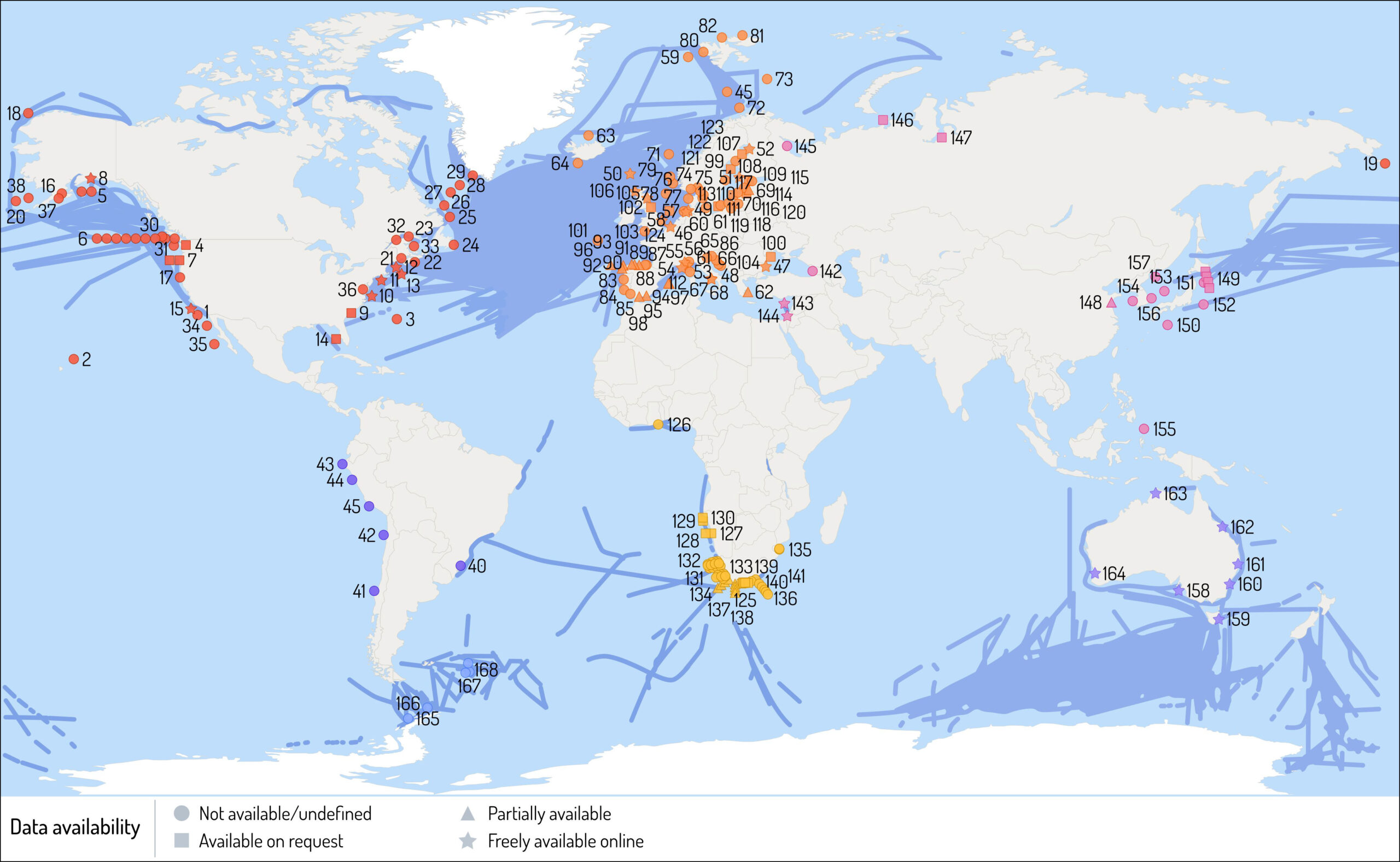Monitoring zooplankton and their changing dynamics due to ocean warming can improve our understanding of marine ecosystems under a changing climate and better inform ocean conservation actions.
Zooplankton, small, aquatic organisms in the water column, are a critical component of marine ecosystems and play a pivotal role in global biogeochemical cycles. An important element of the aquatic food web, zooplankton serve as an intermediary species in the food web, transferring energy from planktonic algae (primary producers) to the larger invertebrate predators and fish who in turn feed on them. Highly sensitive to changing marine environments, zooplankton are significantly affected by ocean warming, and this in turn profoundly impacts marine systems functioning.

In-situ images of plankton species from the Atlantic Ocean. Image credit: Klas Ove Möller / Hereon
A new article published in Nature Communications on 2 February 2023 presents a major review of monitoring and modelling marine zooplankton in a changing climate. Thanks to the efforts of an international and multidisciplinary team, the study highlights key knowledge and geographic gaps in monitoring coverage that urgently need to be addressed. The study also presents an integrated sampling approach that combines traditional and novel techniques to improve zooplankton observation and monitoring, and enhanced modelling of future scenarios under global climate changes.
“The authors of this article, which include authors from EU-funded projects like EuroSea and EU4OceanObs, identified no less than 168 long-term zooplankton monitoring programmes around the world, with the potential of giving a global view on zooplankton, an essential climate indicator and biological variable. But they also found out that, very unfortunately, only around 19 % of the collected data are freely available, hampering further analysis.
Open access research and Findable, Accessible, Interoperable, and Re-usable (FAIR) data is a top priority for the European Commission. This article helps us identify areas needing support but also work to change both practices and mindsets, for the benefit of all.”- Nicolas Segebarth, Policy Officer – Directorate General for Research and Innovation (DG RTD) and Zoi Konstantinou, Policy Officer – Directorate General for Maritime Affairs and Fisheries (DG MARE).

Map of long-term monitoring programmes for zooplankton in the global ocean. Reference: Figure 3 in Ratnarajah, L. et al. Monitoring and modelling marine zooplankton in a changing climate. Nat Commun 14, 564 (2023). https://doi.org/10.1038/s41467-023-36241-5
The importance of zooplankton in climate and ecosystem services has been emphasised by the World Meteorological Organisation, the Global Ocean Observing System (GOOS) and the European Union (EU). Zooplankton is recognised as an essential climate indicator at the 2022 GCOS Implementation Plan, as a GOOS essential biological variable and as an indicator for good environmental status for monitoring of the EU Marine Strategy Framework Directive.
The article highlights the lack of data accessibility as a key limitation for moving forward. Lavenia Ratnarajah, the article’s lead author, is a biogeochemist at the Australian Antarctic Partnership Programme. Before that, she was the International Project Officer of the GOOS Biology and Ecosystems panel and a member of the EU project EuroSea.
“Zooplankton play such an important role in the ocean and we need to learn how they are changing in response to a changing climate. There is a lot of information being collected but the data needs to be made freely accessible for researchers to be able to make predictions on a regional or global scale”, explains Dr. Ratnarajah.
Dr. George Petihakis, Research Director at the Hellenic Centre of Marine Research and co-chair of the Steering Group-Ocean Best Practices System, with long experience in ecosystem modelling and monitoring programmes, emphasises the importance of best practices in research design and data sharing for delivering high-quality scientific products and policy advice to stakeholders.
“As highlighted in the review article, zooplankton is a crucial, but overlooked, element of marine food webs with strong connections to ecosystem services that humans depend on like fisheries and carbon sequestration. We need monitoring efforts that follow best practices and are co-designed by data providers and users to advance knowledge, deliver high-quality observations, projections, and actionable policy advice for keeping our oceans, seas, and their services, healthy and sustainable,” says Dr. Petihakis.
EU4OceanObs support for augmented marine life observations and forecasting capacity
The G7 Future of the Seas and Oceans Initiative (FSOI) EU coordination centre supported by the EU4OceanObs action currently leads G7 FSOI activity on marine life augmented observations and forecasting capacity. Dr. Maria Grigoratou, a biological oceanographer, joined the EU4OceanObs/ G7 FSOI team at Mercator Ocean International to take this activity forward. Maria works closely with the scientific community, including the GOOS Biology and Ecosystems Panel, the Marine Biodiversity Observation Network (MBON), and related UN Ocean Decade programmes and EU-funded projects to identify observing and modelling priorities for this G7 FSOI action.
“This is a timely article as it covers a compressive review of how warming can affect not only zooplankton physiology and ecology but also their role in food web dynamics and carbon cycling.” Dr. Maria Grigoratou says. “In the article, the reader can also find directions for the development of a monitoring system that can overcome knowledge and infrastructure gaps so we can better track and project zooplankton responses to environmental conditions.” – Dr Grigoratou, Mercator Ocean International/ EU4OceanObs
Maria also is one of the authors of the above paper and a member of the steering scientific committee of the 7th Zooplankton Symposium. After being on standstill due to the COVID-19 pandemic, the next and 7th edition of the Zooplankton Production Symposium will take place in March 2024 in Hobart, Australia.
Useful links
- Link to Review in Nature Communications: Ratnarajah, L., Abu-Alhaija, R., Atkinson, A. et al. Monitoring and modelling marine zooplankton in a changing climate. Nat Commun 14, 564 (2023). https://doi.org/10.1038/s41467-023-36241-5
- Related news article by Australian Antarctic Program Partnership (AAPP): Mind the gaps: marine zooplankton futures in a warming world
- G7 FSOI activity on Augmented Observing & Forecasting Capacity for Marine Life – www.g7fsoi.org/activities/augmented-observatories/
- 7th Zooplankton Production Symposium – meetings.pices.int/meetings/international/2024/zps7/scope
- The Marine Biodiversity Observation Network Plankton Workshops: Plankton Ecosystem Function, Biodiversity, and Forecasting—Research Requirements and Applications
- European Commission, Directorate-General for Research and Innovation, Turning FAIR into reality: final report and action plan from the European Commission expert group on FAIR data, Publications Office, 2018, data.europa.eu/doi/10.2777/1524
- EU-funded project EuroSea – Improving and integrating the European Ocean Observing and Forecasting System
- Global Ocean Observing System (GOOS) Biology and Ecosystems Panel





